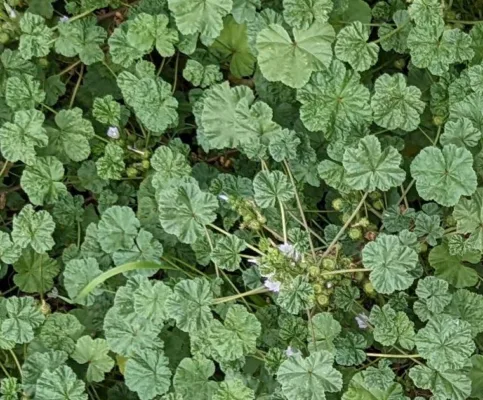Indian Mallow: Cultivating Wellness: Exploring the Nutritional and Benefits
Indian Mallow botanical name is Abutilon Indicum. We call it Thuthi Keerai in Tamil, and Kanghi in Hindi.
Origin
Scientific Name:
Indian Mallow is scientifically known as Abutilon indicum.
Introduction:
Mallow, or Abutilon indicum, is a versatile and culturally significant plant native to the Indian subcontinent. Also known as “Atibala” in Sanskrit and “Country Mallow” in English, it holds a special place in traditional Indian medicine, known as Ayurveda, due to its various medicinal properties. This leafy green plant belongs to the Malvaceae family and is characterized by its attractive yellow flowers and broad, heart-shaped leaves.
Indian Mallow has been used for centuries in traditional remedies to treat a wide range of ailments. Its leaves, roots, and seeds are all valued for their therapeutic benefits. In addition to its medicinal uses, Mallow is also a vital component of Indian culture and has been mentioned in ancient texts and scriptures.
In your exploration of Mallow, you will discover its diverse uses, from herbal remedies to culinary applications. The plant’s leaves and seeds are not only used for their potential health benefits but also as ingredients in various traditional dishes. Whether you’re interested in its medicinal properties or its culinary uses, Indian Mallow offers a fascinating journey into the rich tapestry of Indian culture and natural remedies.

Nutrients
Indian Mallow, scientifically known as Abutilon indicum, is a leafy green plant that offers a variety of nutrients and compounds that can be beneficial for human health. Here are some of the key nutrients and bioactive compounds found in Indian Mallow:
Vitamins: Its leaves are a good source of vitamins, including vitamin C, vitamin A, and various B vitamins. These vitamins play essential roles in supporting overall health and immune function.
Minerals: The plant contains minerals such as calcium, potassium, and iron, which are important for bone health, electrolyte balance, and oxygen transport in the body.
Proteins: Mallow contains proteins that provide essential amino acids, which are the building blocks of the body. Amino acids are crucial for muscle growth and repair, as well as various metabolic processes.
Fiber: It is rich in dietary fiber, which is beneficial for digestion and can help regulate bowel movements and prevent constipation.
Phytonutrients: Indian Mallow contains various phytonutrients, including flavonoids and polyphenols, which have antioxidant properties. They help to protect any heart diseases.
Essential Fatty Acids: The plant may also contain essential fatty acids, such as omega-3 and omega-6 fatty acids, which are important for heart and brain health.
Alkaloids: It is known to contain alkaloids like quercetin, which may have anti-inflammatory and antioxidant properties.
Flavonoids: Flavonoids in Indian Mallow, such as kaempferol and myricetin, can contribute to its antioxidant and anti-inflammatory effects.
Tannins: Tannins found in Indian Mallow may have astringent properties and can contribute to its traditional medicinal uses.
It’s important to note that the specific nutrient content of Indian Mallow can vary based on factors such as soil quality, growing conditions, and plant maturity. The plant’s nutritional profile makes it a valuable addition to traditional diets and herbal remedies, contributing to its reputation for promoting well-being and supporting various aspects of health.

Benefits
Indian Mallow, scientifically known as Abutilon indicum, offers a range of potential health benefits due to its nutrient-rich composition and traditional medicinal uses. Here are some of the key benefits associated with Indian Mallow:
Anti-Inflammatory Properties: Mallow is known for its anti-inflammatory properties, which can help alleviate various inflammatory conditions and reduce swelling and discomfort.
Digestive Aid: The dietary fiber in In the leaves supports healthy digestion by promoting regular bowel movements and preventing constipation.
Rich in Antioxidants: The plant contains antioxidants that protect the body’s cells from damage caused by free radicals. This may help reduce the risk of chronic diseases.
Respiratory Health: Mallow is traditionally used to treat respiratory issues such as coughs, colds, and bronchitis. It may help relieve symptoms and support respiratory function.
Skin Health: The application of leaves can soothe skin irritations and help with conditions like rashes and insect bites.
Support for Diabetes Management: Some studies suggest that Mallow may have a role in regulating blood sugar levels, potentially aiding in diabetes management.
Anti-Arthritic Effects: The anti-inflammatory properties of Mallow may provide relief to individuals with arthritis by reducing joint pain and inflammation.
Cardiovascular Health: Compounds in Mallow leaves, such as flavonoids, may have a positive impact on heart health by promoting healthy blood pressure and reducing the risk of cardiovascular diseases.
Immune System Support: The vitamins and antioxidants in Mallow can strengthen the immune system, helping the body fend off infections and diseases.
Traditional Medicinal Uses: Mallow has a long history in traditional medicine, including Ayurveda, where it is used to treat a wide range of conditions, from fevers to urinary disorders.
Culinary Uses: In some regions, Indian Mallow is used in cooking. Its leaves can be added to soups and curries, providing not only flavor but also potential health benefits.
It’s important to note that while Indian Mallow has been traditionally used for these purposes, further scientific research is needed to fully understand and confirm its medicinal properties. If you plan to use Indian Mallow for its health benefits, it’s advisable to consult with a healthcare professional or herbalist to ensure safe and appropriate usage.
